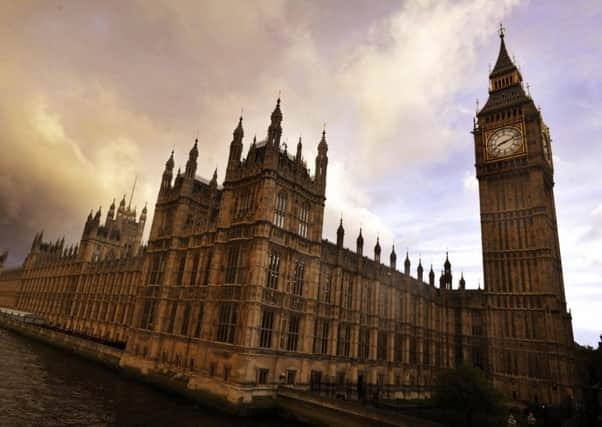YP Comment: Price of democracy - is it time to value and respect MPs?


However it should be more profound than this. As political anoraks digest the Boundary Commission’s blueprint in response to Tory proposals to reduce the overall number of MPs from 650 to 600, including the potential loss of four seats in Yorkshire, the more fundamental question should be whether these changes are good for democracy – or not?
Context is critical. Calls to reduce the MPs were triggered, in part, by the law-making burden shifting from Westminster to Brussels. Now Britain has voted to leave the European Union, is this argument still valid when the remainder of this decade – and beyond – is going to be dominated by the legislative changes that Brexit will entail. Scrutiny by backbenchers will be critical to securing the best possible deal.
Advertisement
Hide AdAdvertisement
Hide AdAnd then there are the MPs themselves. Though their cause was not helped by the expenses scandal when a relatively small number of Parliamentarians shamed Westminster, they are not the sole reason why the overall cost of politics is now being called into question – Norman Fowler, the new Speaker of the House of Lords, can’t defend the existence of 820 unelected peers while the role of local councillor has become a paid career to many rather than a civic duty.
Cut the number of elected representatives to create larger constituencies and that will mean MPs taking longer, and requiring more resources, to answer correspondence from their voters. Is that what the public wants? Are there better ways of saving money? Both of these questions need answering before the politicians concerned plot their next career moves.
Cameron era ends
LIKE the actual EU referendum which will be David Cameron’s defining legacy, the former prime minister could not win when he announced his intention to stand down as MP for Witney.
If he had remained on the Tory backbenches, and tried to influence Theresa May, he would have been accused of being a back-seat driver in the mould of Margaret Thatcher when she was succeeded by John Major. Yet, by effectively following Tony Blair’s example and leaving Westminster at the very first opportunity, Mr Cameron is open to the charge that he’s trying to maximise his earning power in the private sector.
Advertisement
Hide AdAdvertisement
Hide AdIt’s an unfair criticism. Though Mr Cameron’s brutal downfall was far swifter than anyone could have anticipated – he led his party to an outright general election victory as recently as May 2015 – this decision was taken for the right reasons. As Lord Hague, the former Richmond MP and Mr Cameron’s Foreign Secretary from 2010-14, observed, former prime ministers are either accused of doing too little or being an unhelpful distraction.
However it would be a shame if Mr Cameron was lost to public life altogether as political commentators debate whether the real reason for his resignation was principled opposition to Mrs May’s grammar school plans. Still only 49, he still has much to offer – not least on those issues, like disability rights and the role of charities, that catapulted him to the Tory leadership in the first place.
Leagues apart
ONCE the beautiful game, top level football is now big business as Manchester United become the first British club in history to announce yearly revenues in excess of £500m – and this by a club which has endured a series of costly upheavals on and off the pitch. It’s why Premier League survival is critical to the finances of clubs like Hull City and Middlesbrough, two of the teams who recognised the commerical importance of replacing dilapidated stadia with family-friendly grounds.
And it’s why the more wistful Leeds United fans glance enviously across the Pennines to Manchester, a city which has built much of its regeneration and leisure industry on the back of its two mega-rich football clubs. Even though a new survey ranks Leeds as the best to place to live, they will wonder whether the true potential of their team – and council-owned land ripe for redevelopment next to Elland Road – will be realised while the club lurches from crisis to crisis under Massimo Cellino.